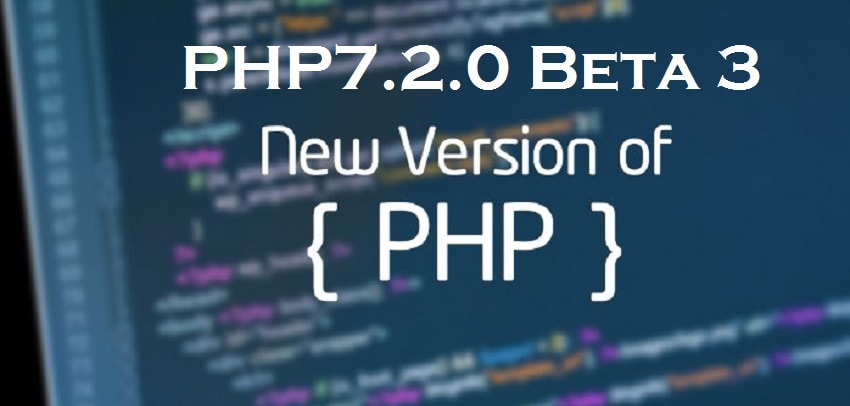[responsivevoice_button rate=”0.9″ pitch=”1.2″ volume=”0.8″ voice=”US English Male” buttontext=”Listen to this article now”]
If you are a good web developer, then you understand how PHP supports web development and helps you to make websites for several businesses. PHP usually runs on Apache web server and Linux operating system. You even know that website development in PHP is easy in comparison to other programming languages. There are different versions of PHP available such as PHP7.2.0 to work in, but do you know PHP7.2.0 is evolving and making PHP7.2.0 more awesome than before. Besides, the latest updates in this version make PHP better for you.
A recent study has revealed that the expert development team of PHP announces the most recent version and immediate availability in its Beta form. Are you eager to know about this latest update? Read here- this version is PHP 7.2.0 Beta 3. This release would be on 31 August 2017, which is the third beta for PHP7.2.0. It is suggested to every PHP user to test this version carefully and report any of the compatibilities to the bug tracking system if present. This will help you to make a website without any errors, bugs, and viruses with ease.
Here are a few new features added to PHP7.2.0 Beta 3 Version
Compatible for different Operating systems:
This latest update in PHP7.2.0 Beta 3 version is compatible with different operating systems such as Linux and also supports Debian8 Unix-like operating system.
Bugfix release:
The newest PHP7.2.0 version is bugfix released, which means that it can handle programming bugs by its own. Due to this, this will not create errors during the system implementation and make your website development process complete in less effort.
Update in Core functionality:
This makes it possible now to remove argument-type annotations if you override an inherited method. This also follows the principle of Liskov substitution principle that lets your code compile with method argument types.
Added functionality of Sodium and SQLite3:
The PHP version 7.2.0 Beta 3 comes with a new cryptographic extension and also supports the implementation of writing to BLOBs.
Standard change:
The simplified password hashing API found in old PHP versions is upgraded to support Argon2i hashes. This functionality will work when PHP gets complied with libargon2.
Apart from these features, what is new in its functions? What changes are made in functions of the PHP7.2.0 Beta 3 release? This PHP7 version comes with many new functions and features such as Date, Calendar, Streams, Session, and a lot more. This involves:
Core:
Fixed bug #75063 (Main CWD initialized with the wrong codepage)
Date:
Fixed bug #75002 (Null Pointer Dereference in timelib_time_clone)
FTP:
Added ftp_append() function.
Mbstring:
Fixed bug #75001 (Wrong reflection on mb_eregi_replace)
SQLite3:
Updated to SQLite 3.20.0
SPL:
Fixed bug #75049 (spl_autoload_unregister can’t handle spl_autoload_functions results) and Added spl_object_id)
WDDX:
Fixed bug #73793 (WDDX uses wrong decimal separator)
XMLRPC:
Fixed bug #74975 (Incorrect xmlrpc serialization for classes with declared properties)
Above all, if you read the above information, you may find that there is a lot of performance improvement and updates in this most recent version of PHP- PHP7.2.0 Beta 3. So, if you are working on an old PHP version, the wait is not too long for updating it again as this version is going to be released very soon.
Moreover, you can subscribe to our Lemosys blog if you want to get useful and relevant information on other technical topics. We are always available to help you.

